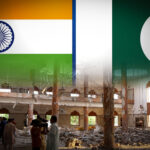Introduction
As tensions between the U.S. and China persist, all eyes are on U.S. Defense Secretary Pete Hegseth as he makes his debut at the Shangri-La Dialogue, Asia’s most prominent security forum. Scheduled to speak on Saturday, Hegseth is expected to lay out the Trump administration’s Indo-Pacific strategy and attempt to reassure skeptical allies about U.S. commitment to regional security.
A Crucial Test for Hegseth on the Global Stage

According to a Reuters report, Hegseth’s appearance follows months of political turbulence. Narrowly confirmed in January 2025 and under fire for sharing sensitive military plans, Hegseth has been focused more on domestic military reform than global diplomacy. His Shangri-La remarks will mark his first major speech addressing international defense strategy.
U.S. vs China: Competing for Indo-Pacific Trust
Hegseth will use his platform to argue that the United States is a more “trusted partner” than China, particularly in light of the anticipated absence of Chinese Defense Minister Dong Jun. This could give Hegseth a chance to dominate the regional narrative and emphasize security through allied cooperation, echoing his recent remarks: “Peace and deterrence come through strength and allied partnerships.”
Allies Express Unease
Despite Hegseth’s planned reassurances, many Asian allies remain wary. The Trump administration’s past behavior—such as shifting air defense assets from Asia to the Middle East—has left uncertainty in its wake. European allies have also been rattled by Hegseth’s rhetoric; in February, he warned NATO not to treat the U.S. like a “sucker.”
Democratic Senator Tammy Duckworth, attending the forum as part of a bipartisan delegation, was blunt: “He’s only got this job because he sucked up to Trump and looked good on Fox News. He’s not capable of delivering the message of long-term commitment,” she told Reuters.
What Experts Are Saying
According to Greg Poling of the Center for Strategic and International Studies (CSIS), Southeast Asian nations like the Philippines may be cautiously optimistic. “They feel more reassured than our European allies, but the doubt still lingers,” he noted.

Ely Ratner, formerly the Pentagon’s top China expert under the Biden administration, added that the region will be watching closely: “Will the Hegseth we see in Singapore be the pragmatic one from his March trip to Japan and the Philippines—or the hardliner from Brussels?”
Conclusion
Hegseth’s debut at the Shangri-La Dialogue represents more than just a policy speech—it’s a litmus test of America’s credibility in the Indo-Pacific. As China continues to expand its influence, the U.S. must not only talk tough but also present a coherent, long-term strategy that resonates with its regional partners.
For more on the Trump administration’s Asia strategy, see our recent analysis on visa restrictions for Chinese students.









